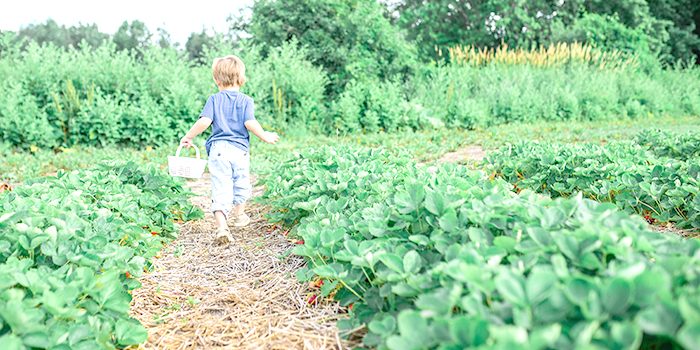Posted on August 6, 2019
Mental Health

Share
My six-year-old grandson is more than a blessing to me. He’s been a life-changer. One of the new lessons I am learning from him is about patience.
The interests in his young life have been agricultural. He loves plants and planting. Last year and this year, he has had his own little spot for a garden. He has planted the seeds, weeded, and harvested. The harvesting has been the tough part. It’s not that he doesn’t like to harvest but that his timing is off. Whenever he sees the fruit starting to bear, he likes to pick it. The problem, of course, is that it is not ready to be picked. This is a difficult concept for him, and one that has resulted in baskets of many an unripe bounty from his garden and ours!
I came across an adage I had not read before which is so appropriate for this situation:
“The day you plant the seed is not the day you eat the fruit.“
This takes me to the need we all have for developing the fruit of the Spirit which is patience.
Kira Newman wrote “Four Reasons to Cultivate Patience” (Greater Good Magazine, April 4,2016). In this article she shared:
The Bible references patience at least 29 times.
Galatians 5:22-23 states:
“But the fruit of the Spirit is love, joy, peace, patience, kindness, goodness, faithfulness, gentleness, and self-control.”
So often we demand immediate results for efforts at work, with relationships, and in prayer. It is so important to remember that results happen in God’s time and not ours. Planting the seed and tending the seed is our responsibility, but the rate at which it grows and ripens is very much God’s. How much more inner peace might we all experience if we realize what is within our control and what is not?
My grandson is learning as he harvests what is not ripe. The fruit may be too hard, the vegetable not tasty at all. And so we learn as we live our lives, that God’s timing is our growing season. Patience is the food that nourishes the growth. The result is very much worth waiting for.
Are you having issues with patience on the job, with family, or with where you are in life? You may benefit from therapy sessions with a Christian counselor from Lutheran Family Service who can be your guide on the journey to a better understanding of yourself and the world God created for us.
Learn more at: https://lutheranfamilyservice.org/mental-health-counseling/
Toni Larson, LISW
Clinical Social Worker & Director of Counseling for Lutheran Family Service
More posts about Mental Health